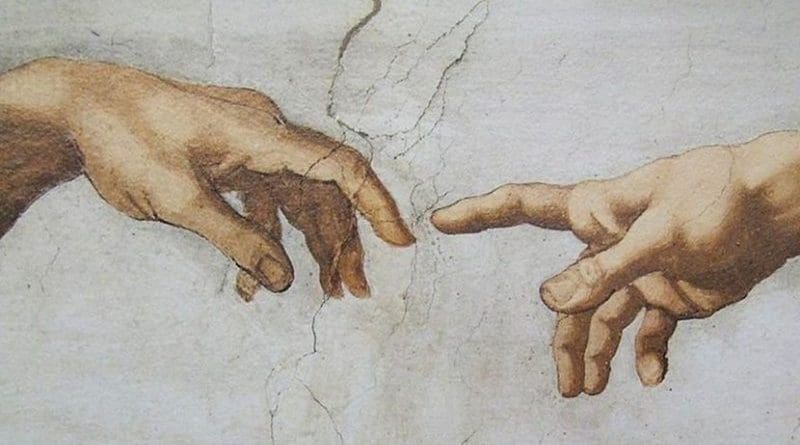If Allah Had So Wanted – OpEd
The words “if Allah had so willed” appears 7 times in 6 verses in the Quran and indicate that Allah wants more than just one true religion. So religious pluralism is Allah’s will.
Two of them come in one verse: “Those apostles We endowed with gifts, some above others: To one of them (Moses) Allah spoke (directly and not through an angel); others He raised to (different) degrees (of honor); to Jesus the son of Mary We gave clear (signs), and strengthened him with the holy spirit. If Allah had so willed, succeeding generations would not have fought among each other, after clear (signs) had come to them, but they (chose) to wrangle, some believing and others rejecting. if Allah had so willed, they would not have fought each other; but Allah fulfills His plan.” Al-Baqara, Chapter #2, Verse #253)
Christian missionary battles against Judaism and Islam reached new heights of hostility starting in Spain in the tenth century. Religious truth in Europe, and then in the Middle East, became a zero sum game: anything positive said about another religion was seen as weakening your own side. The goal was not to modestly try to harmonize various religious perspectives of the one and only God; but to self-righteously exaggerate religious differences, well beyond any reasonable understanding of the two sides.
In a zero sum game any value or true spiritual insight I grant to another scripture somehow diminishes my own. This view was the result of the specific influence of Aristotle, who questioned where European freshwater eels came from, and decided rationally, that they sprang up spontaneously from the mud.
Also Greek philosophy’s general emphasis on the logic of the excluded middle was wrong. Something is either true or it is false. There is no other option. If two propositions contradict one another, one or both of them must be false. They cannot both be true. But that itself is not true. Greek philosophers sought truth when they should have sought how to encourage people to be kind, charitable, friendly.and to love their neighbors as they love themselves.
A disciple of Prophet Muhammad named Abu Huraira relates, “The people of the Book used to read the Torah in Hebrew and then explain it in Arabic to the Muslims. Allah’s Apostle said (to the Muslims). “Do not believe the people of the Book, nor disbelieve them, but say, ‘We believe in Allah, and whatever is revealed to us, and whatever is revealed to you.”‘
Following Muhammad’s teaching I also neither believe nor disbelieve the Qur’an. If I believed in the Qur’an, I would be a member of the Muslim ummah (community). But I cannot disbelieve in the Qur’an because I believe that Muhammad was a prophet; and I respect the Qur’an as a revelation to a kindred people, in a kindred language. In fact, the people, the language and the theology are closer to my own people, language and theology than that of any other religion on earth.
How does this perspective affect my understanding of their Qur’an and my Torah? I practice ‘hosgoru’. Unlike those in the past who played the zero sum game, I do not seek some verse in the Qur’an I can dispute or object to. Indeed, this is what the Qur’an itself teaches. “For every community We have appointed a whole system of worship which they are to observe. So do not let them draw you into disputes concerning this matter.” (22:67)
“To you We sent the Scripture in truth, confirming the scripture that came before it, and guarding it in safety: so judge between them by what Allah hath revealed, and follow not their vain desires, diverging from the Truth that has come to you.. To each among you we have prescribed a law and an open way. if Allah had so willed, He would have made you a single people, but (His plan is) to test you in what He hath given you: so strive as in a race in all virtues. The goal for you all is Allah. He will show you the truth of the matters in which you dispute;” Al-Maeda, #5, Verse #48)
If one believes that there is only one God who is revealed by many different inspired prophets, then we should be able to learn more about God’s will by gaining insights into our own unique revelation, from other revelations of that one God. Since all monotheistic scriptures come from the one and only God, we should view other scriptures as potentially enriching our understanding and appreciation of our own scripture.
So we should emphasize our common beliefs and respect our particular differences because, “To each among you, We have prescribed a law and a clear way. If Allah willed, He would have made you one nation, but (He didn’t in order to) test you in what He has given you; so strive (compete) as in a race to do good deeds. You all will return to Allah; then He will inform you about that in which you used to differ.” (Qur’an, 5:48)


I regret to say that this article misrepresents the teachings of Al-Qur’an. The author has previously written other similar articles arguing for Quranic support for pluralism of religion. This is far from the truth. The statements “if Allah, glory to Him, had willed” are largely emphasis on freewill given to man to do as he wishes, even in wrong, as well as, emphasis on the authority of the Almighty to will anything. The religion with Allah is simply one – total submission to Him.